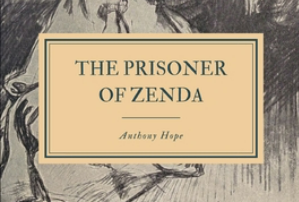Chapter 22 — Present, Past and Future?
byChapter 22 – Present, Past and Future? begins with the narrator retreating to the Tyrol, seeking refuge in its peaceful mountain setting after the tumultuous events in Ruritania. Removed from the political danger and emotional turbulence he left behind, he finds time to rest and regain strength. A discreet message is sent to his brother, assuring him of his safety, though no explanations are offered. With his appearance altered by a new beard—concealing the identity that once passed for royalty—he returns to Paris, stepping cautiously back into his old world. There, he reunites with George Featherly, an old friend whose presence reminds him of a more predictable life. Yet to maintain the illusion of normalcy, he spins harmless tales of romantic misadventures, diverting attention from the incredible truth. Every word, however, weighs heavy with the secrets he cannot share, making clear that his past in Ruritania remains unfinished business.
During his brief stay in Paris, the narrator also reconnects with Madame de Mauban, whose fate is intricately tied to the events at the castle. Their correspondence, though outwardly mundane, carries undertones of regret, understanding, and quiet acknowledgment of sacrifices made. The emotional cost of their shared past lingers, forming a thread of connection that neither can fully sever. When he returns to England, his family greets him with the kind of mixed reactions that often follow a long and unexplained absence. Rose, his sister-in-law, views his return with a blend of relief and exasperation, puzzled by his seeming refusal to embrace a conventional future. Her expectations—rooted in ambition and public service—clash with the path he has chosen, or rather, the one he no longer pursues. The notion of a diplomatic post in Strelsau briefly arises, but the absurdity of stepping back into a world where he resembles the King makes the idea impossible.
Settling back into country life, the narrator struggles to find joy in the comforts he once took for granted. Balls, political dinners, and quiet clubs no longer hold the same appeal. His soul, once stirred by adventure and love, now resists the quiet complacency of English high society. Yet, not all is lost to memory. Each year, he travels quietly to Dresden, where he meets Fritz von Tarlenheim, his loyal ally and one of the few who truly understands what was left behind. Their annual ritual—a simple exchange of red roses—serves as a powerful symbol of brotherhood, loyalty, and shared sorrow. These moments are the only bridge he allows himself to keep to that world, a bittersweet connection to a life that forever changed him. They do not speak of Flavia, but her presence is always there, lingering in every silence, every shared glance, every rose laid in remembrance.
The narrator’s reflections shift toward Flavia—the woman he loves and lost. His heart remains tethered to her, even as reason insists they are worlds apart. She rules a nation while he, though noble, lives in quiet exile from what might have been. Still, he carries the hope, however faint, that destiny may not have spoken its final word. The figure of Rupert of Hentzau looms in his thoughts as well—charming, dangerous, and unrepentant—a man who represents the chaos still lingering in Ruritania. The narrator wonders if fate, always unpredictable, might again draw him into a future entangled with the country’s uncertain destiny. Despite the quiet rhythms of his current life, a part of him remains alert, waiting for the call that may never come.
This chapter closes on a tone of noble melancholy. There is no triumph, but neither is there defeat—only the quiet dignity of choosing honor over desire. His love for Flavia is eternal but unreachable, preserved not in reality but in memory and imagination. Though separated by duty and circumstance, she remains the light that guided him through the darkest moments. And so, he lives on—not as a hero in action, but as a guardian of the past and a silent watcher of what may come. In his solitude, there is peace, but also the faint echo of unfinished stories waiting to unfold. Whether destiny will demand more of him or leave him in his quiet corner of the world, only time can answer.


